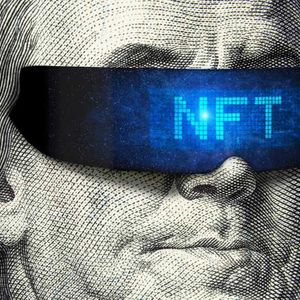Seeking Alpha
 2023-03-02 19:33:32
2023-03-02 19:33:32
Summary Stacks is a smart contract blockchain that utilizes Bitcoin miners and BTC in a "proof of transfer" blockchain model. The native coin of the Stacks blockchain is STX. STX has rallied from $0.20 to over $1.00 over the last few weeks. Much of that rally is in response to the continued adoption of the Ordinals NFT project on Bitcoin. Ordinals and Stacks are two completely separate things. So the STX rally is being driving more by expectations than fundamental usage. In recent weeks, one of the best performing digital assets in the broader market has been Stacks ( STX-USD ). After rallying from just $0.21 at the end of 2022 all the way to $0.97 on Monday, STX has nearly 5x'd in just a matter of a few weeks. Surely there's a fundamental story behind this move, right? What is Stacks? How one should classify the Stacks blockchain is actually a point of some debate among crypto enthusiasts. There are some who say it is a Layer 2 scaling chain built on top of Bitcoin ( BTC-USD ). And there are others who say it is a "side-chain" and not a true Layer 2 like Bitcoin's Lightning Network. The major sticking point from those who say it's a side chain seems to be the existence of the STX token. Lightning utilizes BTC to scale rather than a native coin which is why the L2 designation doesn't seem to be up for argument. Stacks.co From a mechanical standpoint, the Stacks blockchain utilizes the Bitcoin miners and what is essentially a BTC deposit model called "proof of transfer" for generating BTC yields for STX holders and Stacks network security. The model has come under some scrutiny because it asks the Bitcoin miners to use BTC to "bid" on the STX block reward. This could theoretically be a problem for Stacks if the STX token falls in price too fast against BTC. This scenario might disincentivize bidding BTC for STX yields if the real yield is negative. Functionally, Stacks is a smart contract blockchain that enables DeFi, NFTs, and domain services. Stacks also features something called "City Coins" which are designed to allow market participants to essentially make bets on specific jurisdictions. I'll withhold my personal commentary on City Coins as I think the performance of MiamiCoin speaks for itself. The NFT Narrative The main driver of the recent rally in STX appears to be the emergence of NFTs on Bitcoin as an idea. The ability to create NFTs that are secured by Bitcoin is a major selling point from the Stacks website : As with fungible tokens, NFTs on the Stacks blockchain are created with Clarity smart contracts. Because of the relationship between Stacks and Bitcoin, NFTs created on Stacks settle to and are secured by Bitcoin. There is some legitimacy to the notion that Bitcoin will develop a larger NFT ecosystem as we've already seen a big spike in NFTs minted on Bitcoin blocks through the Ordinals protocol: Ordinals Mints (Dune Analytics/ilemi) Since launch, there have been roughly a quarter of a million Ordinals NFTs minted on Bitcoin. What's interesting though is Ordinals and Stacks have absolutely nothing to do with one another. Ordinals is a protocol that utilizes Taproot to mint NFTs using Bitcoin's block space. The Ordinals protocol never touches Stacks or the STX token. Nevertheless, it appears that STX could be rallying because of Ordinals despite no direct connection with that protocol. Stacks Network As far as Stacks goes, the network growth of that chain has been much less clear. According to the Stacks website, the protocol has over $400 million in TVL but that figure is benefiting from the surge in the USD price of the native STX token. When measured in STX, the "cycles," or stacking periods, have actually seen steady declines in STX that has been stacked going back to cycle 46: STX TVL (Stacking.Club) In fact the last completed cycle (number 52) had just 357 million STX tokens stacked, the lowest since cycle 15. In that cycle there were 153 stackers. This seems to be a continuation of a larger trend down in the number of stackers as time goes on. Average Stacked Stackers Miners Q4-21 421.8m STX 222 6 Q1-22 449.6m STX 213 7 Q2-22 498.6m STX 199 7 Q3-33 493.3m STX 184 7 Q4-22 511.2m STX 168 8 Source: Messari Messari's recently published Stacks note shows some additional problems. With just 8 Bitcoin miners participating last quarter and slow growth, there are centralization concerns in the early goings of the Stacks network. But still, I'd be more worried about the declining number of Stackers than anything else. Messari The surge in real volume reported by Messari coupled with the declines in the number of STX making it into stacking cycles would seem to corroborate the idea that the recent activity in the price of STX has more to do with speculation than anything else. That said, there is an interesting development that is expected to garner a large technical improvement to the Stacks blockchain this year. In December, the Stacks team announced the "Nakamoto release" and the sBTC token. One of the major constraints of Stacks is the reliance on Bitcoin blocks for transaction settlement. With the Nakamoto release, Stacks will be able to process transactions between Bitcoin blocks for a much faster chain that still benefits from finality on the Bitcoin main layer. The sBTC token is similar to Wrapped Bitcoin ( WBTC-USD ) as it would allow for Bitcoin-pegged DeFi activity on the Stacks blockchain. However, unlike WBTC, sBTC would not require a centralized custodian. Risks: Venture Capital Coin There is a fairly large amount of venture capital money behind Stacks which is sometimes frowned upon in certain cryptocurrency circles. Some of the Stacks backers include Digital Currency Group, the Winklevoss twins, and numerous others: Stackers Backers (CryptoRank) According to CryptoRank, Stacks has raised over $64 million between a seed round, additional funding round, private token sale, and ICO. And this estimate doesn't include the value of a strategic funding round that took place in July of 2019. Crunchbase has the estimate closer to $94 million in total VC funding. The point is, there is a non-zero percent VC dump risk in STX. I don't personally see alignment with larger players as a total net negative, but the possibility of being exit liquidity is always something to keep in mind when exploring these kinds of assets. VCs are very capable of getting it wrong. Just look at FTX ( FTT-USD ). Summary There is a notable block reward problem facing Bitcoin long term that likely needs to be solved one of two ways; either through a change to the network that enables new BTC issuance via block reward or through a large increase in the transaction fees that are paid to miners. The first option is likely a non-starter. Without an enormous increase in the price of BTC, the dollar denominated value of revenue from on-chain transactions would have to come from real network utility. This would mean BTC would have to be moved around not HODL'd. This is why there has been some growing acceptance of the idea that Bitcoin will likely need to welcome BTC fees paid from things like NFTs and DeFi to justify miner participation. I would say we're still a long way from knowing if Stacks is indeed the answer to Bitcoin's block reward problem, but it's an interesting idea nonetheless. Still, I wouldn't be chasing the idea at today's STX price. Like just about everything else in crypto, STX seems to be more of an idea at this juncture than a thriving ecosystem building on Bitcoin's network security. There's nothing wrong with taking a chance on an idea that has yet to manifest, but there is quite a bit of risk in doing that. I would probably avoid taking a chance on an idea after it has already rallied 400% in just a matter of a few weeks. STX is probably one to watch from the sidelines for a while.
Bitcoin (BTC) $91,968.52 4.87%
{
Ethereum (ETH) $2,289.05 4.71%
Tether (USDT) $1.00 -0.01%
{
 Solana (SOL) 148.644431 2.53%
Solana (SOL) 148.644431 2.53%Cardano (ADA) $0.97 -0.67%
{
Chainlink (LINK) $17.23 14.42%
{
 Litecoin (LTC) $106.69 1.48%
{
Litecoin (LTC) $106.69 1.48%
{
 Helium (HNT) 3.420941 12.89%
{
Helium (HNT) 3.420941 12.89%
{
 Polygon (MATIC) 0.25693 2.45%
{
Polygon (MATIC) 0.25693 2.45%
{
Dash (DASH) $24.95 2.72%
{
 X-CASH (XCASH) 3.0E-6 5.48%
{
X-CASH (XCASH) 3.0E-6 5.48%
{
Dogecoin (DOGE) $0.00 0.77%







